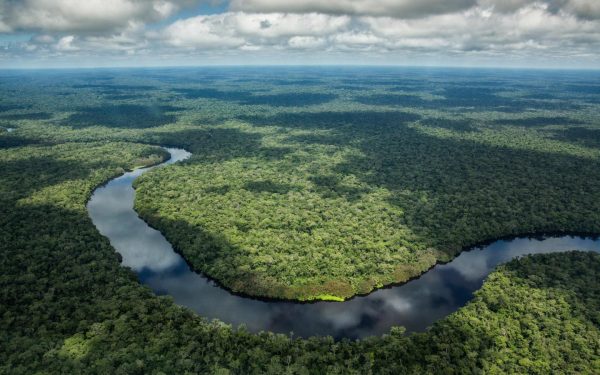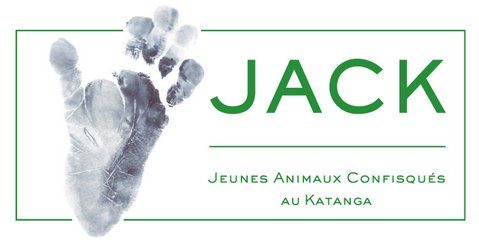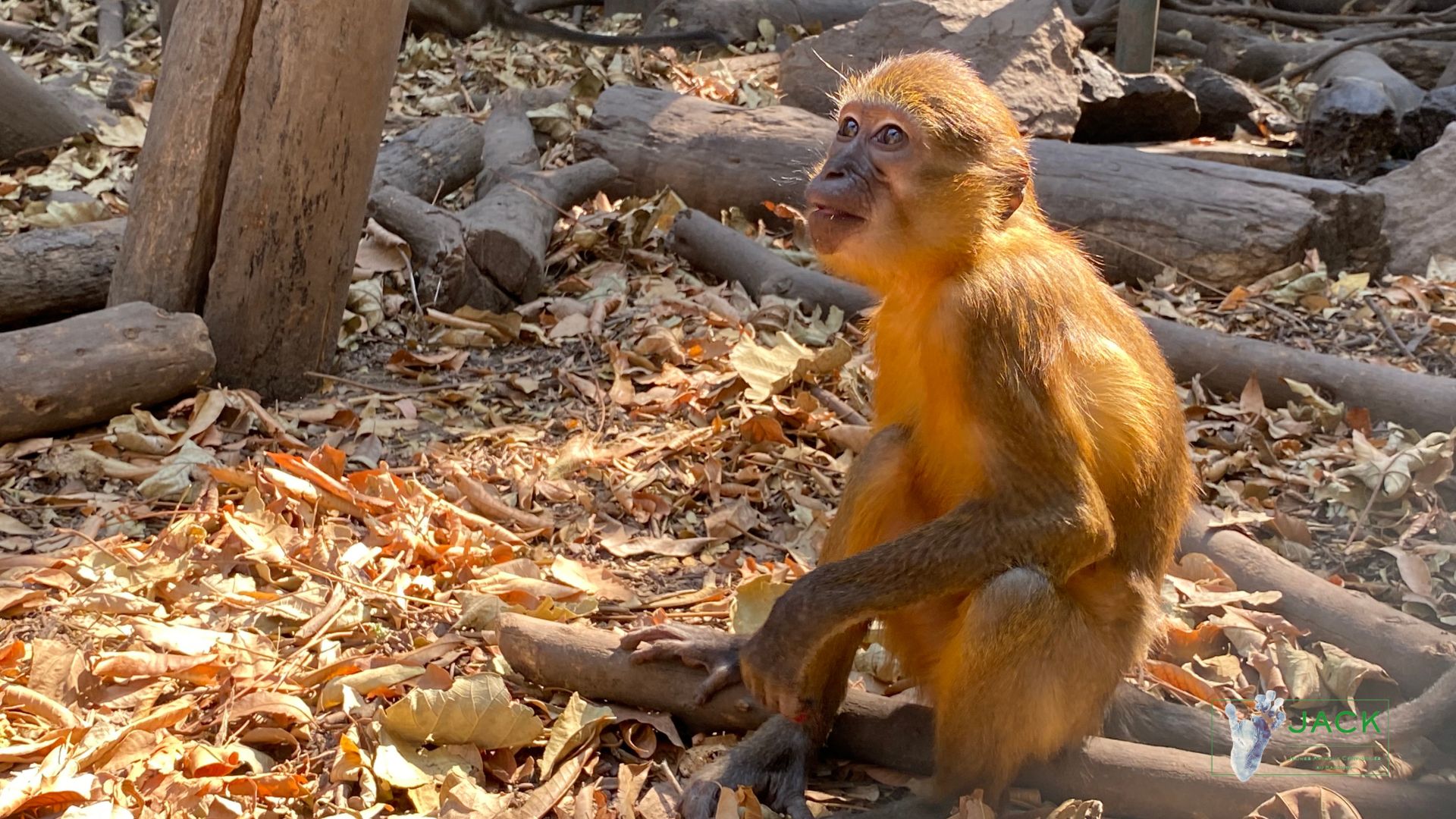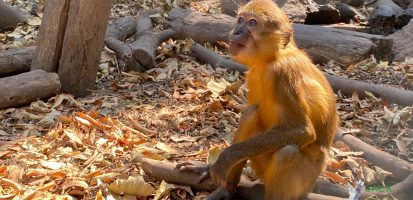J.A.C.K. has long been a sanctuary for chimpanzees (Pan troglodytes schweinfurthi), from its creation in 2006 until February 2021 with the arrival of the 20 monkeys from Zimbabwe, which changed its status to that of a Primate Rehabilitation Center in general.
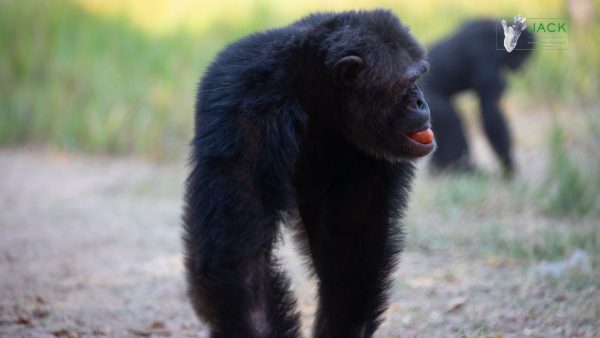
The chimpanzee is in danger of extinction and J.A.C.K., which rehabilitates 42 chimpanzees to date, and despite several attempts of sabotage, including a arson attack that claimed the lives of two young chimpanzees in April 2006 and the kidnapping of three others in September 2022, is a real bastion in the face of the extinction of their species.
Since 2021, the rehabilitation center has been home to several species of monkeys that are vulnerable and, above all, endemic to DR Congo, such as golden-bellied mangabeys (Cercocebus chrysogaster chrysogaster) and Lesula monkeys (Cercopithecus lomamiensis lomamiensis).
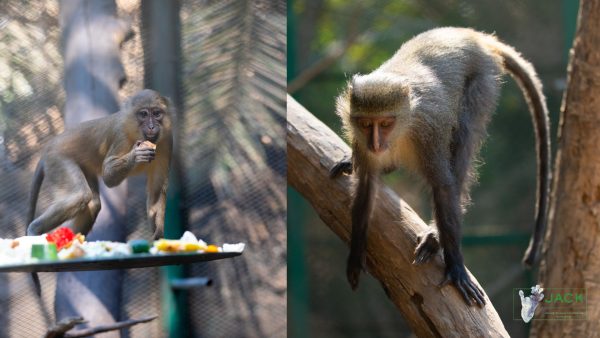
The golden-bellied mangabey is one of the 25 most endangered primate species in the world. It is classified as Endangered in the IUCN Red List, which is justified by the current decline of all known populations, due to intensive hunting for bushmeat, reduced occupancy due to habitat loss and degradation by forest exploitation.
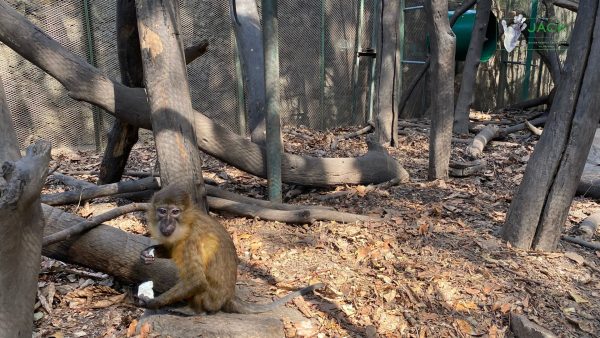
The golden-bellied mangabey lives outside protected areas, making it vulnerable and easily accessible to poachers. It is intensively hunted for bushmeat, and there has recently been a huge trade in babies to Southeast Asia.
As for the Lesula monkey, it was discovered in 2007 in the middle of today’s Lomami National Park. Part of the population lives inside the Park, which is a relatively protected area, but the greater part lives outside the Park, which is unprotected, giving poachers easy access to the lesula and increasing the number of victims killed each day to feed the bushmeat trade. Local populations living close to the forest, who have no other food resources, join in the poaching and kill this species in an uncontrolled manner.
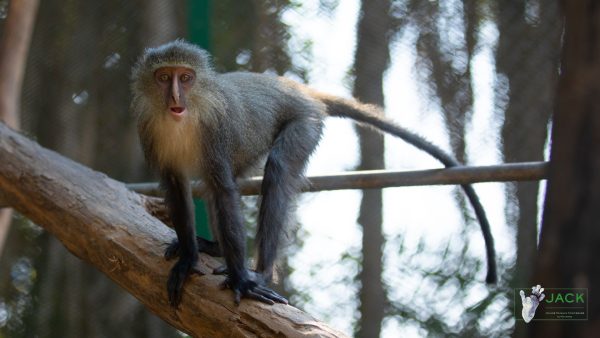
As explained above, these primates live in areas mostly covered by the forest of the Congo Basin, and some of these areas are not under the protection of the Congolese authorities, which gives free rein to hunters and poachers who kill entire groups in bulk (mostly consisting of 10-20 individuals) in order to supply the illegal bush trade in the region or elsewhere. And the youngest ones, still too thin to be eaten, become by-products and will either be kept and fattened up for later consumption, or sold in the exotic animal trade in Asia or the Middle East, or become living toys for children in the villages.
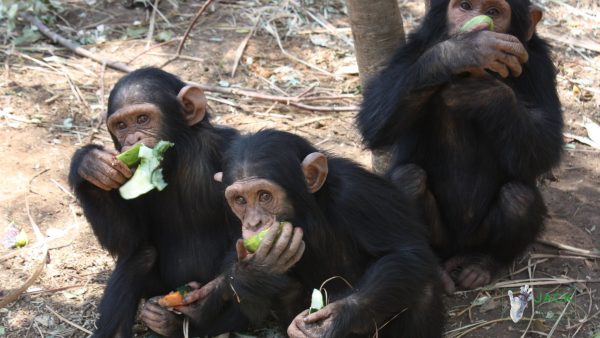
These species, taken as special cases, represent all the others that have not been mentioned but are living the same fate in the forests of DR Congo.
In addition to rehabilitation, J.A.C.K. aims to reintegrate the animals into their natural habitat. However, conditions on the ground are not ideal for them to return to the forest, as poaching, intensive hunting and trafficking are still prevalent and, as far as we know, no strong measures have been taken to limit or even stop these activities, which aim to empty our forests of its ecosystem.
J.A.C.K. remains committed to saving and rehabilitating primates, hoping one day to release them into a protected natural environment so that they can repopulate our beautiful and majestic Congo Basin.
